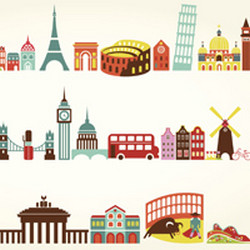Perceptions of Europe in the world
Funded by the EU and sporting an international consortium of research teams, the project 'European Union & the world seen from abroad' (EUROBROADMAP) aimed to discover 'how Europe exists in the mind'. To this end, researchers elaborated three types of non-Eurocentric visions of Europe in the world: subjective, political and functional. For the subjective vision, the team carried out a quantitative survey of 9 300 undergraduate students in 43 cities and 18 countries. Analysis centred on the perception of migrants and collective representations in different migratory channels. The focus was on EU boundaries and the enlargement process — a particularly sensitive issue in the media context. The political aspect examined 'how Europe exists in relation to political discourse'. They investigated institutional visions of Europe produced by states as well as supranational or transnational organisations. An interesting finding in this area is that the EU is seen as an important political and economic actor, but not as a power per se. It would seem that the EU's 'political power' is actually a narrative developed by EU institutions to promote the idea of a unified Europe to its citizens. EUROBROADMAP also analysed the objective regionalisation of the world in terms of functional flows and networks, and Europe's position in this regionalisation. Testing different types of flows such as trade, finance, migration and diplomatic relations helped reveal various images of Europe that exist in the world. A number of insights were gained by exploring differences between the mental, functional and political aspects of Europe from a critical perspective. With regard to Europe's appeal for students, the survey revealed a very large cluster of attractive countries in northern and western Europe. Overall, study participants perceived Europe as a mostly pleasant, wealthy and powerful place to live. EUROBROADMAP contributed to a growing awareness of the complexity of Europe's actual situation in the world in both material and spiritual dimensions. Project outcomes can be used to help the EU succeed better globally in relation to finance, trade and diplomacy, as well as other areas.
Keywords
Mental map, attraction power, non-Eurocentric, collective representations, enlargement process, political discourse, regionalisation, functional flows, trade, finance, diplomatic



